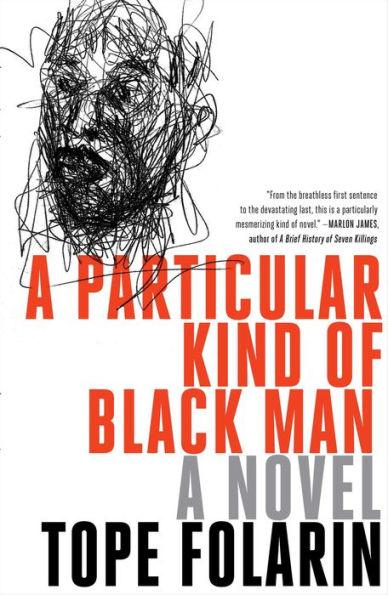
LITERARY FICTION
Tope Folarin
A Particular Kind of Black Man: A Novel
Simon & Schuster
Hardcover (also available as an e-book, audiobook, and audio CD), 978-1-5011-7181-9, 272 pgs., $26
August 6, 2019
Tope Folarin has created a captivating mosaic of identity fractured by the clash of warm immigrant expectation with icy new-world reality. The prose is carefully crafted and for the reader, seamlessly visual. Metaphors and subtle descriptors, plus deft, freighted dialogue make this an easily habitable read.
The title allusion to particularity is key to the turbulent, often capricious negotiation of immigrant “self” examined from multiple angles: Tunde, his mother, his father and ultimately, the kaleidoscope of peer groups the young man works through as he grows up, as they too must fit him into their world and not always in the way he’d like.
Though his parents arrived in America with preconceived notions to sustain them, the challenges of otherness are simply dumped on Tunde in real-time. His father chooses the literal insistence, settling where no other family member has gone, and doing so in the Hollywood cowboy-movie mien, though his pre-bought cowboy hat remains hidden under the bed. Ultimately, his mother gives up, abandons the family and returns to Nigeria, while his father forges stubbornly ahead. That leaves Tunde to navigate the loss and, often, the wreckage, mostly solo. He must decode a new language and culture and find—and face—his place.
The results are poignant, often sad, but mostly a stoic mix. When Tunde’s father encounters Mrs. Reynolds, who’s come to take Tunde to an NAACP meeting, African language clashes with a Black American perception of native African culture: “All your books are false!” Tunde’s father thunders at her, which is a telling revelation that flies over his own head, or at least his acknowledgment: his own mythological expectations of life in America are equally based on false perceptions. Yet those he obstinately never gives up.
Tunde’s solitary lifeline between Africa and America, old and new world, is an ephemeral, almost spiritual conversation with his grandmother back on the old continent. The dialogue is iconic: a fingertip touch with a world lost, the conscience of the past inadequate—yet still comforting—in the frontier of a new culture in which Tunde must resolve an identity and a place for himself. In a unique way, this dialogue inscribes Tunde’s very real “middle passage.”
Just past midway in the story, Folarin takes the reader on an aesthetic excursion best described as beautiful in an innovative way or, in the symbolically reflective dynamic emblematic of his prose, innovative in a touching way: true love won or lost. It is breathtaking.
Upon reflection, the power of this story is put into relief by Folarin’s creative refusal to stay within the lines of narrative convention and fly away like Tunde’s heart upon difficulties with Noelle: like Tunde, the author transcends typical boundaries and plays it larger than life. The results are stunning, rewarding, and for the reader, eye-opening.
“Break a vase,” says Nobel Laureate Derek Walcott, “and the love that reassembles the fragments is stronger than that love which took its symmetry for granted when it was whole.” In the end, Folarin reassembles the fractured pieces of Tunde’s world to forge a new beginning. Though Tunde dreams of the old days with his mother when she dragged him around a foreign land as a child, he can’t recall ever feeling really safe. She is still unreachable, but now it’s different: he will bring them safely “back home.”
The reader is left to contemplate the possible facets of Folarin’s well-crafted narrative vision and the multiple, layered potential of the term “home.” The possibilities are endless and, in the afterglow of the story, beautiful.
Tope Folarin is a Nigerian-American writer based in Washington, DC. He won the Caine Prize for African Writing in 2013 and was shortlisted once again in 2016. He was also recently named to the Africa39 list of the most promising African writers under 40. He was educated at Morehouse College and the University of Oxford, where he earned two master’s degrees as a Rhodes Scholar. He is the author of A Particular Kind of Black Man.
Chris Manno earned his doctorate in English at Texas Christian University where he teaches writing. He is the author of the award-winning Texas novels East Jesus and Blood and Remembrance.
